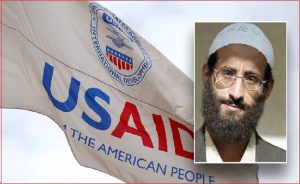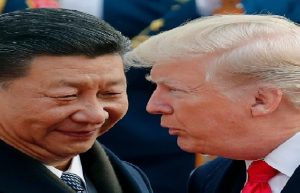12-02-2025
BEIJING/ WASHINGTON/ After US President Donald Trump’s administration froze donations in January to Cambodia’s largest demining organization, which works to clear the countryside of deadly remnants of Washington’s past wars in Southeast Asia, the group announced new funding from China.
 Beijing has doubled its contributions over the past three years to the Cambodian Mine Action Centre (CMAC), which helps clear millions of unexploded munitions, said Heng Ratana, who leads the group.
Beijing has doubled its contributions over the past three years to the Cambodian Mine Action Centre (CMAC), which helps clear millions of unexploded munitions, said Heng Ratana, who leads the group.
On Feb. 5, CMAC said it had received a pledge from Beijing to contribute $4.4 million surpassing the $2 million donated by the US last year. Ratana said China understands that such support helps “build up people-to-people networks” and generates economic returns.
Beijing invests heavily in its neighboring countries and has recently focused on building soft power through goodwill exchanges and diplomatic engagement, according to the Lowy Institute in Sydney, which studies Asia-Pacific geopolitics but it does not provide traditional aid on the same scale as Western democratic nations. China also has little experience providing the specialist assistance from combating disease outbreaks to distributing humanitarian aid in conflicts zones that the United States Agency for International Development (USAID), Washington’s main vehicle for delivering such support, is known for.
Trump has halted most US government-funded aid globally for 90 days, while moving to dismantle USAID, which he accused of being run “by a bunch of radical lunatics.” The move is part of an effort by his administration to slash the federal government workforce and curb spending it considers wasteful.
While the administration has said some funds may be released when the pause expires, a lack of clarity around what could be restored has prompted scores of groups across Asia to abruptly stop work or lay off staff.
 The US provided over $894 million in assistance to Southeast Asia in 2023, the latest year for which official data is available.
The US provided over $894 million in assistance to Southeast Asia in 2023, the latest year for which official data is available.
The freeze will hobble humanitarian work and human rights at a time of a tussle with China for influence over the region, said Joshua Kurlantzick, an analyst at the Council on Foreign Relations think-tank in New York.
“The overall shift will be toward China and away from the US as the US squanders its soft power,” he said, adding that the combination of Beijing providing more assistance and Washington retreating from funding civil society programs “crushes democratic potential in virtually every country in the region.”
A spokesperson for China’s Ministry of Foreign Affairs said in response to Reuters’ questions that it offered aid “without political conditions” and in alignment with the needs of its partners. Chinese cooperation with other developing countries would remain steadfast “regardless of changes in the international landscape,” the official said. The US State Department, whose top diplomat Marco Rubio is now USAID’s acting administrator, did not respond to a request for comment.
China, which has its economic troubles at home, is unlikely to match the generosity of the US, the world’s largest aid donor.
Instead, Beijing prizes “large-scale infrastructure and investment programs” that are a hallmark of the Belt and Road Initiative (BRI), said Derek Grossman, an analyst at the RAND Corporation think-tank. The BRI is China’s $1 trillion infrastructure assistance program, which envisions ports and railroads connecting Asia, Europe and Africa.
The ISEAS-Yusof Ishak think-tank’s annual poll of Southeast Asian decision-makers in 2024 found that China for the first time had “edged past the US” as their preferred partner. (Int’l News Desk)
 Pressmediaofindia
Pressmediaofindia




